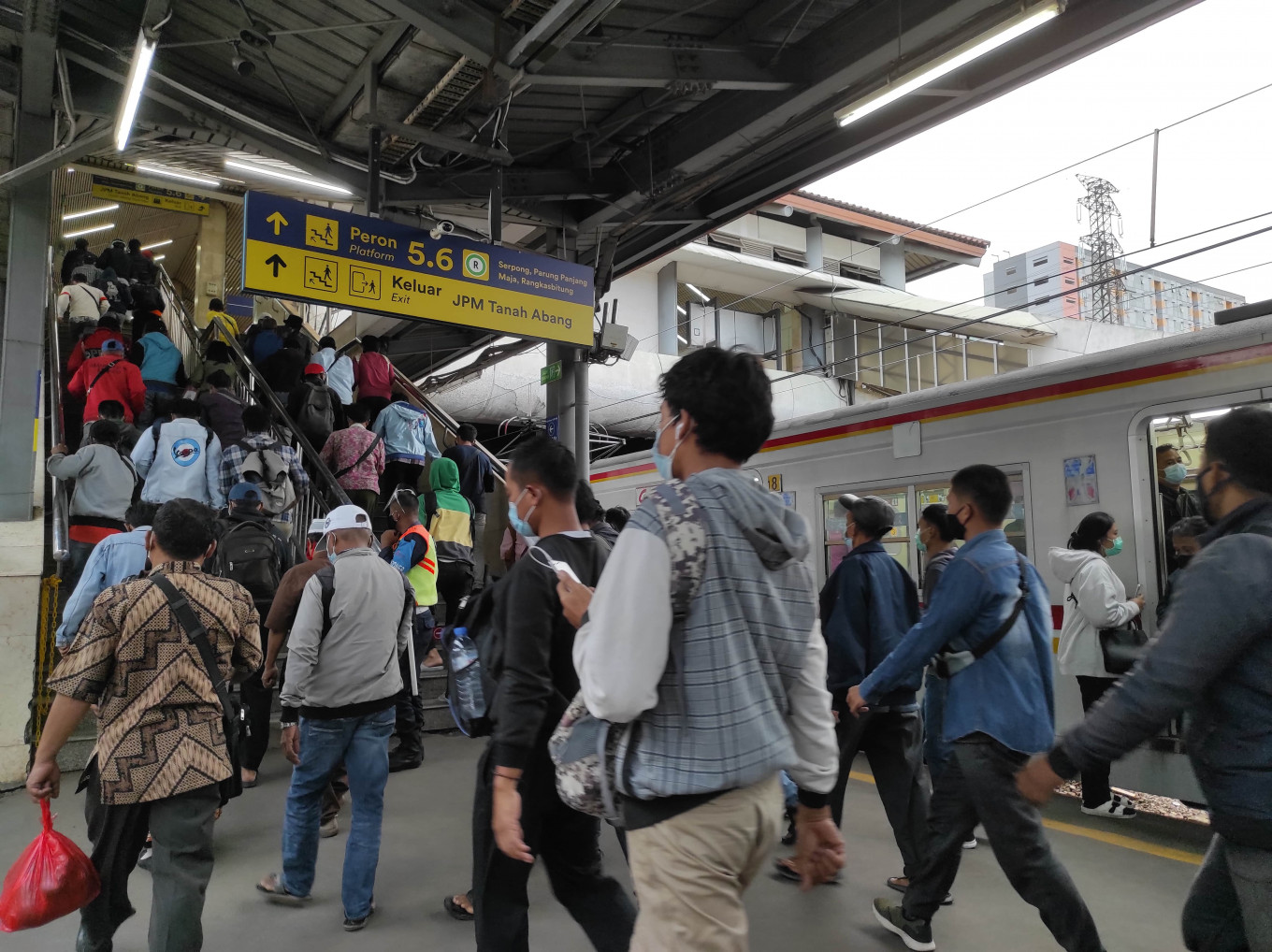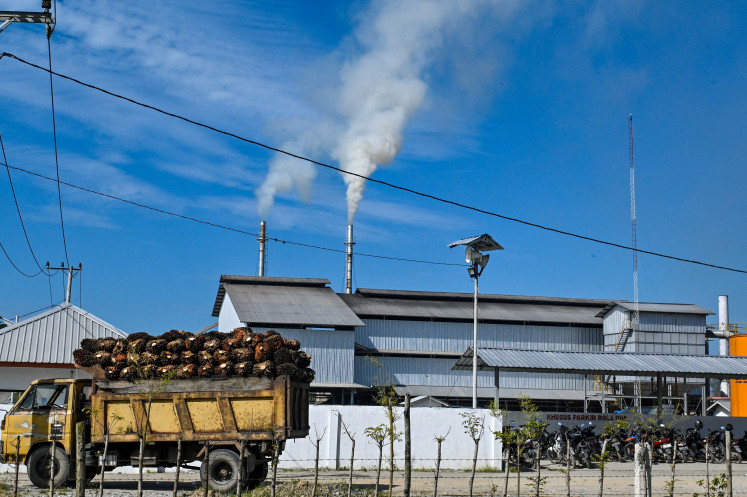Popular Reads
Top Results
Can't find what you're looking for?
View all search resultsPopular Reads
Top Results
Can't find what you're looking for?
View all search resultsIn Indonesia, self-isolation is luxury not everyone can afford
Some people have said they cannot afford to fully comply with virus restrictions over fears of putting their employment at risk.
Change text size
Gift Premium Articles
to Anyone
I
magine having to work with four other people who do not wear masks in a poorly ventilated room, or sneaking into the office of your boss who, unlike everyone else at the company, has been working from home since March 2020, just to be able to eat lunch alone or have it on a balcony with the external end of conditioners blowing hot air outside.
These are everyday realities for a 24-year-old woman with an office job at a small construction supplies distributor in Surabaya, East Java.
And adding to this conundrum, she felt she could not stay home while she had symptoms consistent with COVID-19. Nur, who has asked to be identified by her first name only, knew that if she took a day off and failed to present a doctor’s note — she was avoiding doctor’s visits over virus fears — the company might cut her pay for the day.
“I’m sure my colleagues feel the same way. We’re afraid of having our pay cut if we’re not confirmed positive [for COVID-19],” said Nur, who is also responsible for screening everyone’s temperature at the office.
Quarantine and isolation are key to cutting chains of COVID-19 transmission, but some people, like Nur, cannot afford to comply with all protocols over fears of putting their income at risk.
Experts have been calling on the government to focus on strategies for quarantine and self-isolation, including by providing assistance to people who must undergo these measures, which they say could be distributed through the help of local communities.
But the government’s COVID-19 social aid scheme primarily targets poor and vulnerable families, not the wider public in need of support during isolation.
It has also been marred by data errors and distribution snags, as well as a graft scandal involving former social aff airs minister Juliari Batubara.
Read also: Minister Juliari named suspect in COVID-19 aid graft case
The government has generally shifted the responsibility of providing food to people in isolation to communities across the country, as suggested by the Health Ministry’s COVID-19 protocols.
And only Jakarta has passed a bylaw stipulating its responsibility to provide food for affected residents, including those who have tested positive and are undergoing self-isolation.
Wisnu Iriawan, 59, a resident of Sidoarjo, East Java, who has been leading COVID-19 containment eff orts in his neighborhood, said people had mostly used their own money to assist those in isolation.
He said food aid from a local social agency had stopped arriving six months ago.
“Where have all the trillions of rupiah of government spending on the COVID-19 response gone?” he said, adding that he believed people would be more open about their COVID-19 status if assistance was available.
The Labor Law mandates paid sick leave, and the Manpower Ministry issued a circular letter last year suggesting that employees suspected of having COVID-19 be paid in full while in quarantine under a doctor’s order.
Those who have tested positive should be paid as well, according to the law. But informal workers now make up at least 60 percent of the country’s workforce of 128.45 million, meaning many workers do not have the offi cial status to obtain paid sick leave.
A 30-year-old worker with an office job at a manufacturing plant in Cilegon, West Java, said one of his colleagues had recently received a warning letter from the company after the person tested positive for COVID-19.
Read also: Unemployment surges to decade high as COVID-19 causes millions to lose jobs
“[My friend] was perceived as violating health protocols [...] There was an investigation result leading to a warning letter when, in fact, [the management] might not know where [the employee] could have contracted the virus,” said the worker, who asked to be called Indra.
“Here, it is perceived that if you test positive, it will harm production, halting the factory.”
Testing should be expanded to cover all suspected cases and close contacts with no symptoms, according to epidemiologist Laura Navika Yamani, who said that without test results, people would be less likely to comply with calls to isolate.
Yet testing turnaround still ranges from days to weeks, meaning the proper period of isolation can be uncertain.










